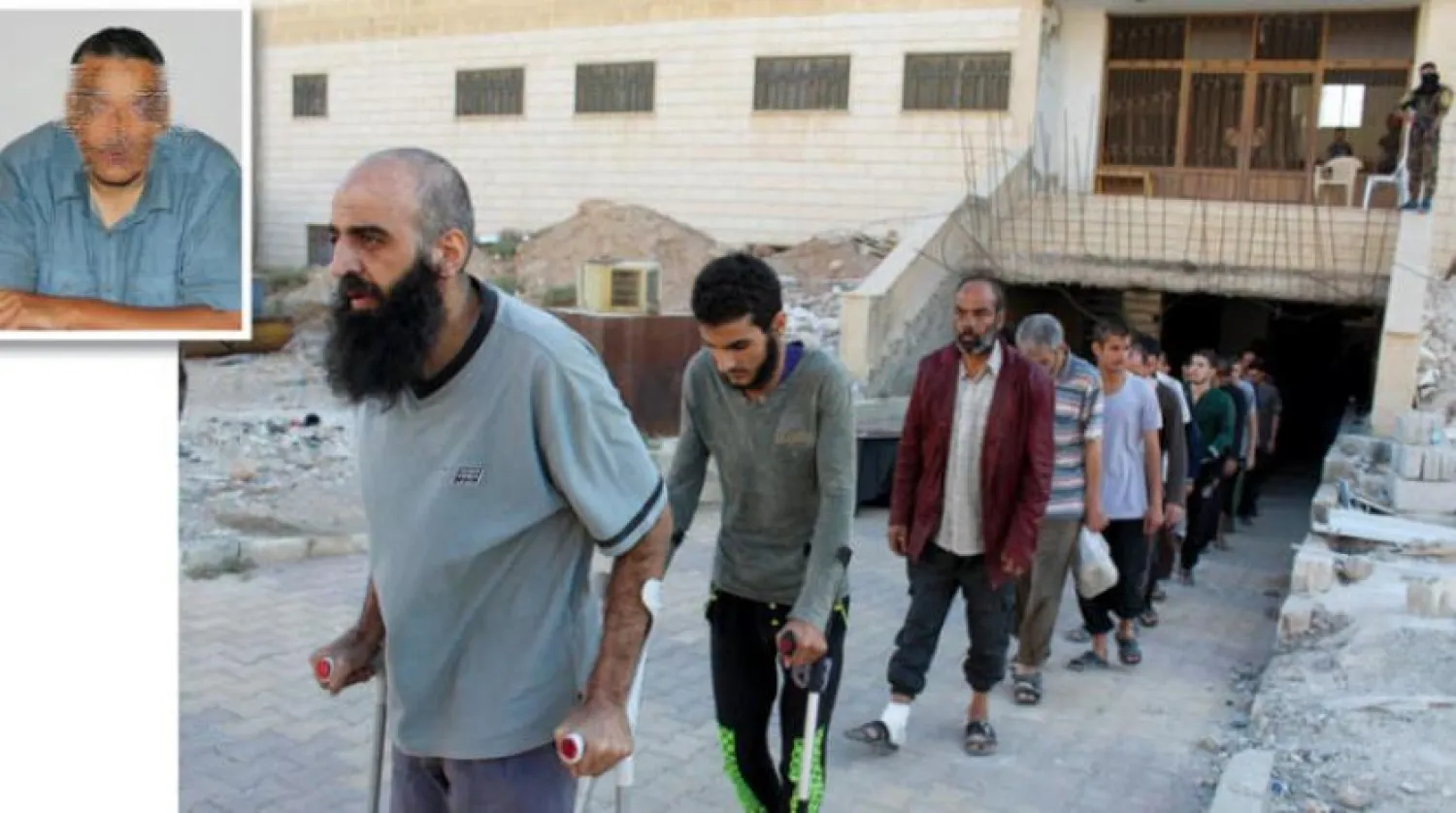September of 2013 A.A. turned his back to his home just off the coast of the Mediterranean in the Moroccan capital Rabat, and headed to Raqqa, arguably the hottest zone of the Syrian conflict. Rising within ISIS ranks, A.A. eventually became a “leader” in the extremist group.
He aspired to thrive under a self-proclaimed “caliphate,” that was until he found himself locked up in a top-security prison north of the country belonging to the US-backed Syrian Democratic Forces (SDF).
Born in Rabat in 1982, A.A. holds a technology certificate and had opened a private company to sell electronic devices.
No one in his family knew when he made up his mind and traveled to Syria.
Speaking to an Asharq Al-Awsat at the SDF headquarters in the northern Raqqa, he explained how footage showing the events of the Syrian civil war stirred his feelings, eventually building up to his decision to join the fight.
He denied however ever being involved with ultra-hardline Islamist groups in Morocco—but said that the woes of the Syrian civil war became the center of discussions of his family members, and everyone initially thought he intended to travel to aid displaced people and refugees in makeshift camps.
In the summer of 2013, he established a line of communications with extremists over social media networks, and received an in with al-Qaeda. Members of the group presented him with a route to travel and gave him exclusive contact information to link up with him upon his arrival.
Later in September, A.A. flew to Istanbul, Turkey, from where he took a bus to the city of Gaziantep near the Syrian border.
"I called the trafficker, who was informed about my arrival. He sneaked me across the border with Syria, and dropped me off at a meeting point where I was received by members of the organization who then took me to a reception.”
The next day, he joined a group of newcomers who were sent to Idlib, northwestern Syria, where he stayed for some 60 days. During this period, he attended an educational course and received arms and combat arts training.
He contacted his family to inform them that he was in Syria and had joined Qaeda’s offshoot Al-Nusra Front.
"My father did not tolerate the news and hung up his conversation with me. My mother was a bit more calm. She asked me to stay in touch with them, and tried to persuade me into going back on my decision."
Two months after A.A. arriving to Syria, disputes between ISIS leader Abu Bakr al-Baghdadi and Al-Nusra Front, headed by Abou Muhammad al-Julani, escalated and the two sides parted ways.
Many foreign and Arab fighters preferred to join al-Baghdadi, A.A. included.
"Al-Julani was harsh with the foreign fighters and deployed them in city outskirts—Al-Nusra was in disarray and confusion with no apparent goal, while ISIS on the other hand declared that his goal to establish an alleged caliphate.”
After ISIS secured its control of the city of Raqqa in January 2014, A.A. was appointed commander of the northern border. He was responsible for the land strip between the town of Ras al-Ayn and its border gate with Turkey.
He said that his multilingual skills had earned him the position.
"It was because I could speak English, French and Spanish in addition to my mother tongue Arabic. I was then dubbed Abou Mansour."
He pointed out that until the end of 2013, the number of foreign arrivals to Syria did not exceed 150 per month.
“After I took office, and as of 2014, an average rate of about 300 foreigners came in daily wishing to fight among the organization’s ranks.”
ISIS members set up a special registry bureau dedicated to noting down the names, nationality and date of entry of foreign recruits.
On the case of the disappearance and murder of the Italian Christian priest Father Paolo Dall'oglio, who visited Raqqa in July 2013, he confirmed that ISIS militants killed him days after keeping him locked up.
"In the summer of 2014, a year after the incident, a Vatican-linked association contacted ISIS via intermediaries in Turkey and asked to interview us on the border between Syria and Turkey, to unveil the fate of Father Paolo and an Italian journalist who had gone missing,” said A.A.
“I in turn delivered the request to the commander-in-chief of Abou Muhammed al-Iraqi who warned not to ask about Father Paolo and refused to meet the association for an interview. ISIS leaders told me that Abou Luqman al-Raqqawi (an ISIS member) had executed the Christian priest. "
Commenting on the nationalities that joined the organization, A.A. said that the majority of fighters came in from Chechnya, Georgia and former Soviet republics.
As for combatants joining from Arab countries, Tunisia registered the highest share, followed by Morocco, then Algeria, Egypt and Libya.
Two years after the so-called "caliphate" was declared in the areas under ISIS control, many towns were gradually lost on the outskirts of Raqqa, most notably Tal Abyad and Ein Issa. The terror group was completely driven out from its Raqqa stronghold in October, 2017.
"A ‘caliphate’ without historic capitals means nothing, a ‘caliphate’ without control over Damascus or Baghdad is incomplete," A.A. said.
The organization staged mass executions, beheadings, rapes, abductions, ethnic cleansing, stoning and other barbaric practices in Raqqa and other cities it controlled.
ISIS was keen on using modern techniques to broadcast its atrocities through live footage posted on the Internet to spread terror among people.














